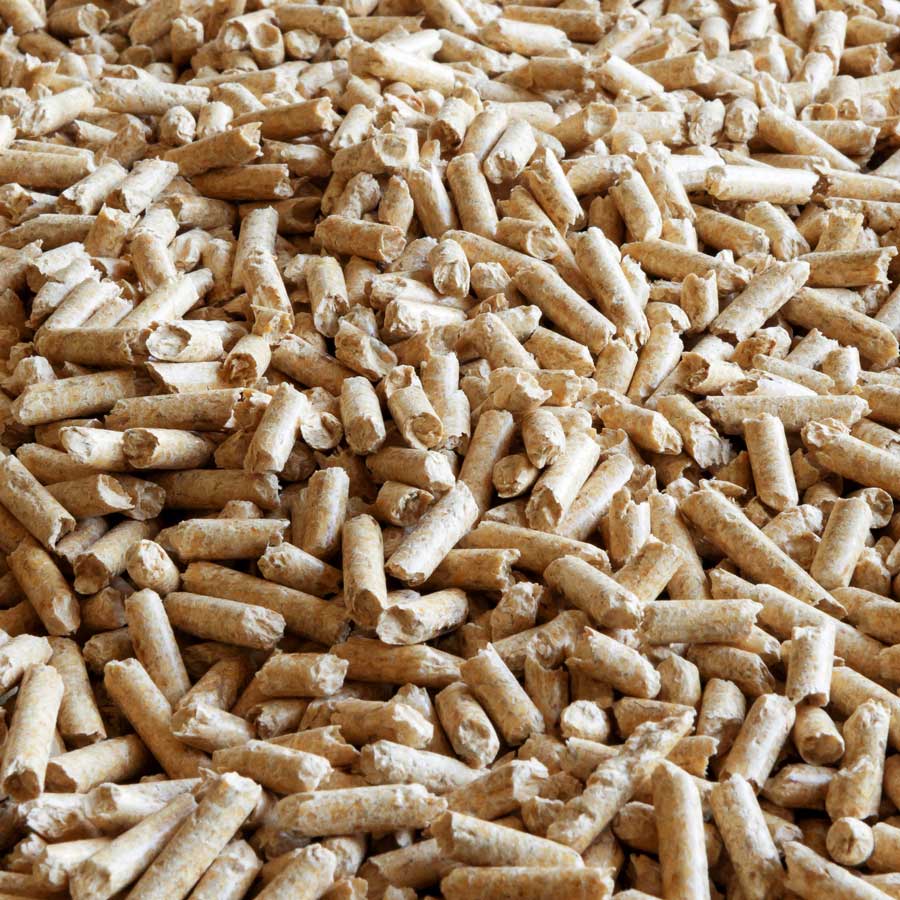When wood wastes are compressed into a consistent diameter under high pressure, wood pellets are produced. These pellets are refined and densified biomass fuel. When it comes to automatic combustion heating systems, such as pellet stoves, wood pellets are perfect because of their homogeneous shape, size, and density. Millions of tons of biomass can be put to use for the local economy and the environment through the process of pelletizing wood leftovers from sustainably collected biomass and quality waste wood. The Timber Industry Accounts for the Vast Majority of the Debris Sawdust pellets are a byproduct of the wood processing industry that is created through the compression and extrusion of sawdust.
- Efficient | Wood pellets are an efficient source of heat because they contain very low levels of moisture and ash when compared to woodchips or cordwood. Virtually all of the material is burned and converted to heat.
- Cost-effective | Wood pellets are economically competitive with home fossil fuel options and electric heat. Relative to other home heating alternatives, pellet fuel prices are less volatile.
- Convenient | Bags of pellets are easy to store. A ton of pellets consists of fifty 40-lb bags and stacks neatly in a 4′ x 4′ x’ 4′ area. Bags of pellets pour directly into a stove hopper, and regulating the rate at which the fuel flows into the hopper is easy given the small, uniform size of the pellets.
- Environmentally responsible | Wood pellets are a sustainable fuel source, and burning wood pellets is carbon neutral.
- Renewable | Wood pellets are biomass products made of wood waste or other forest-thinning byproducts. According to data collected by the Pellet Fuels Institute, wood pellets are an unlimited fuel source.
- Locally produced | Wood pellet mills provide jobs, support local economies, and can lead to energy independence.
- A typical homeowner uses 3 tons of pellets per heating season at a cost of about $825. At an average retail price of $250/ton, pellets offer a fuel cost per million BTU of $19.05. To offer a fuel cost of $19.05 per million BTU, # 2 fuel oil and propane would have to be priced at $2.05/gal and $1.36/gal, respectively!
The pellet stove provides a convenient method of home heating. No more annoying and messy trips inside to replenish the firewood supply. Instead of constantly adding wood to a traditional stove, pellets can be dumped into a hopper and burned as needed.
The pellet stove can be set to automatically feed pellets into the burning chamber at the rate that best suits your needs. Thermostatically managed pellet stoves will keep the room at a set temperature. This eliminates the need to gather firewood in the middle of the night and the discomfort of returning to a cold home after being gone for some time. The extreme fluctuations in heat output—from a wood stove being too hot to too cold—are eliminated.
Compared to firewood, pellet stoves have a lower carbon footprint. More complete combustion is achieved by conducting the combustion process in a smaller combustion chamber with a calibrated air supply. Because of this, there is an increase in the heat with less pollution. Stoves that burn pellets are among the cleanest heating options, and pellets themselves may be the cleanest burning solid fuel option.
Stoves that use pellets are simpler to maintain. They are cleaner than typical wood stoves, producing almost no ash and eliminating the risk of creosote buildup. Pellets are not as dirty as firewood and often come in plastic bags to keep out moisture. Because of their density and compression, pellets can take up much less space than unprocessed wood.
Pellet stoves are more convenient and cheaper to set up than wood stoves. When compared to a wood stove or fireplace, a pellet stove does not require a flue. An exhaust vent is all that’s required, and that can be hidden inside a wall. As a result, pellet stoves can be set up in more locations than would normally be suitable for a wood stove. Because of how cleanly they burn, you may enjoy the warmth of wood even in areas where wood stoves are prohibited due to air quality concerns.
Maryland, Wood Pellet Heating Benefits
The initial investment in a pellet stove is typically lower than that of other heating fuels like wood, oil, gas, or electricity, and the fuel cost is usually comparable to or lower than that of other heating fuels. Pellet stoves are convenient because of the ease with which they may be used and the efficiency with which they heat a home; nevertheless, they do require routine cleaning and maintenance to function properly.
Wood pellets of varying quality can be purchased for use in your wood burner. Similarly, wood pellets can be made from either hard or soft wood. Stoves designed to burn wood pellets are typically compatible with both types, although they’ll perform at their best when fed premium pellets.

